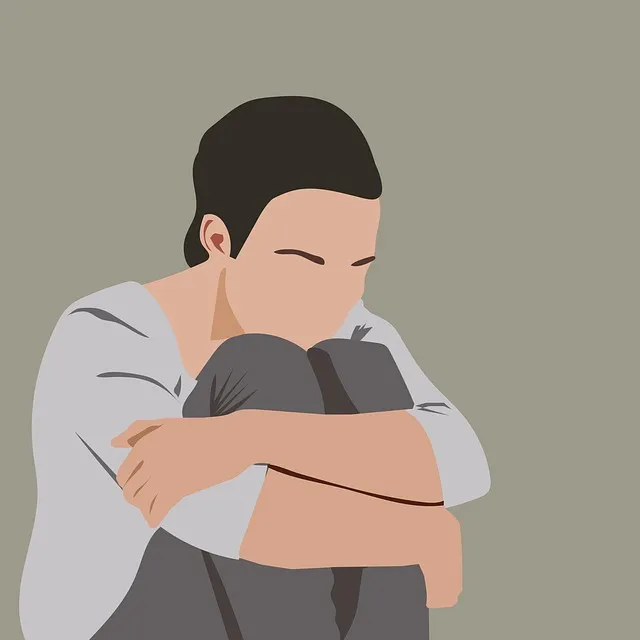The Kaiser Permanente mental health facility in Greenwood Village employs highly effective Crisis Intervention Teams (CITs) using a holistic approach that combines training, compassion cultivation, and evidence-based practices. Through realistic simulations, case studies, and role-playing, CIT members gain skills in de-escalation, stress management, and early intervention strategies. The program focuses on building inner strength, preventing burnout, and improving communication to better handle high-risk situations. Continuous evaluation and updates ensure the CIT program remains aligned with best practices, fostering a supportive environment for both staff and patients.
“Crisis Intervention Teams (CITs) play a pivotal role in mental health care, offering immediate support during crises. This article explores the critical impact of CIT training programs, drawing insights from industry leader Kaiser Permanente’s approach at Greenwood Village. We examine key components for effective training, focusing on preparing team members for real-world scenarios. By evaluating and refining strategies, mental health facilities can enhance patient outcomes, leveraging resources like Kaiser’s successful model to revolutionize crisis support.”
- Understanding Crisis Intervention Teams: A Vital Resource in Mental Health Care
- Kaiser Permanente Greenwood Village: A Model for Effective Crisis Support
- Key Components of Successful Training Programs
- Preparing Team Members: Skills and Strategies for Real-World Scenarios
- Evaluation and Continuous Improvement: Ensuring Optimal Patient Outcomes
Understanding Crisis Intervention Teams: A Vital Resource in Mental Health Care

In the realm of mental health care, Crisis Intervention Teams (CITs) stand as a vital resource, playing a crucial role in addressing acute psychological crises. These specialized teams, often integrated within healthcare facilities like the Kaiser Permanente mental health facility in Greenwood Village, are designed to provide immediate and effective support. CIT members, typically comprising trained professionals and volunteers, are equipped with the knowledge and skills to de-escalate high-risk situations, offering a calming presence that can significantly impact patient outcomes.
The focus of crisis intervention training goes beyond mere response; it emphasizes self-care practices and compassion cultivation as core principles. By imparting mind over matter techniques, these programs enable team members to not only manage their own stress but also to extend compassionate care to those in distress. This holistic approach ensures that the professionals supporting mental health patients are well-equipped to handle challenging scenarios while fostering a culture of empathy and understanding within the healthcare facility.
Kaiser Permanente Greenwood Village: A Model for Effective Crisis Support

Kaiser Permanente’s mental health facility at Greenwood Village stands as a shining example of effective crisis intervention training programs. This comprehensive hub for mental well-being has developed innovative strategies to support individuals in times of crisis, focusing on both acute care and long-term recovery. The program’s success lies in its holistic approach, integrating Inner Strength Development techniques alongside traditional Mood Management strategies.
Through a combination of group sessions, one-on-one counseling, and community outreach, the Greenwood Village team cultivates Empathy Building Strategies that foster deeper connections and understanding. Their model emphasizes the importance of early intervention, providing individuals with the tools to navigate mental health challenges before they escalate. This proactive approach has led to improved patient outcomes and a more resilient community, setting a benchmark for crisis support in healthcare settings across the country.
Key Components of Successful Training Programs

Effective crisis intervention team (CIT) training programs are meticulously crafted to equip healthcare professionals with the skills and knowledge needed to handle critical situations at a mental health facility, such as the Kaiser Permanente Greenwood Village location. A successful CIT training program incorporates several key components. Firstly, it emphasizes practical, hands-on learning through realistic simulations and case studies, ensuring participants gain real-world experience in managing crises.
Secondly, these programs focus on fostering positive thinking and stress management techniques, which are essential tools for frontline staff. By incorporating evidence-based strategies for depression prevention, the training equips teams with the means to recognize early warning signs and provide prompt interventions. The goal is to create a supportive environment where professionals feel empowered to make a difference in patients’ lives during moments of crisis.
Preparing Team Members: Skills and Strategies for Real-World Scenarios

Preparing team members for crisis intervention requires a comprehensive approach that goes beyond basic training. At the Kaiser Permanente mental health facility in Greenwood Village, programs focus on fostering inner strength and developing resilience among staff. This includes strategies to prevent burnout, a common challenge in high-pressure settings like mental health care. By equipping team members with effective communication skills and trauma-informed practices, the facility ensures they are prepared to handle real-world scenarios with empathy and professionalism.
The training emphasizes practical techniques for de-escalation, crisis management, and supporting individuals experiencing a mental health crisis. This preparation goes beyond theoretical knowledge by incorporating role-playing exercises and simulations that mimic challenging situations. Through these hands-on experiences, team members build confidence in their abilities to provide timely and effective interventions, ultimately enhancing the quality of care delivered at the Kaiser Permanente facility in Greenwood Village.
Evaluation and Continuous Improvement: Ensuring Optimal Patient Outcomes

Evaluation and continuous improvement are integral components of crisis intervention team (CIT) training programs, ensuring that patient outcomes at facilities like Kaiser Permanente mental health facility in Greenwood Village remain optimal. Effective CIT programs not only equip professionals with essential skills to handle psychological crises but also foster a culture of learning and adaptation. Regular assessments, including debriefings after each incident, provide valuable insights into the team’s performance. This data-driven approach allows for identifying areas where improvements can be made, whether it’s refining communication strategies, enhancing risk management planning for mental health professionals, or integrating compassion cultivation practices like Mindfulness Meditation to better support patients in distress.
By embracing these evaluative practices, CIT teams at Kaiser Permanente Greenwood Village can stay aligned with the latest research and best practices in mental health crisis intervention. Continuous improvement ensures that the program remains effective and responsive to evolving patient needs, ultimately contributing to a safer and more compassionate environment for both professionals and those they serve.
Crisis intervention team (CIT) training programs, as exemplified by Kaiser Permanente Greenwood Village’s approach, play a pivotal role in enhancing mental health care. By equipping staff with effective strategies and skills, these programs ensure better patient outcomes. Key components include comprehensive curriculum, real-world scenario drills, and continuous evaluation for improvement. Adopting best practices from such models can significantly benefit mental health facilities, fostering safer environments and more compassionate care for individuals in crisis.






